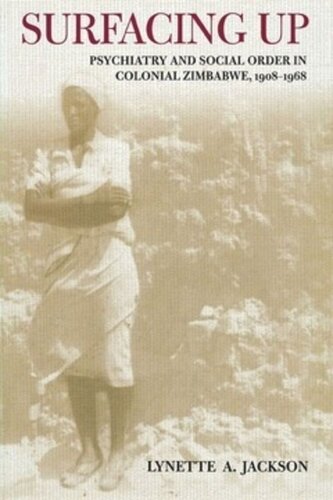

Most ebook files are in PDF format, so you can easily read them using various software such as Foxit Reader or directly on the Google Chrome browser.
Some ebook files are released by publishers in other formats such as .awz, .mobi, .epub, .fb2, etc. You may need to install specific software to read these formats on mobile/PC, such as Calibre.
Please read the tutorial at this link: https://ebookbell.com/faq
We offer FREE conversion to the popular formats you request; however, this may take some time. Therefore, right after payment, please email us, and we will try to provide the service as quickly as possible.
For some exceptional file formats or broken links (if any), please refrain from opening any disputes. Instead, email us first, and we will try to assist within a maximum of 6 hours.
EbookBell Team

4.0
76 reviewsFocusing on the history of the Ingutsheni Lunatic Asylum (renamed a mental hospital after 1933), situated near Bulawayo in the former Southern Rhodesia, Surfacing Up explores the social, cultural, and political history of the colony that became Zimbabwe after gaining its independence in 1980. The phrase "surfacing up" was drawn from a conversation Lynette A. Jackson had with a psychiatric nurse who used the concept to explain what brought African potential patients into the psychiatric system. Jackson uses Ingutsheni as a reference point for the struggle to "domesticate" Africa and its citizens after conquest. Drawing on the work of Frantz Fanon, Jackson maintains that the asylum in Southern Rhodesia played a significant role in maintaining the colonial social order. She supports Fanon's claim that colonial psychiatric hospitals were repositories for those of "indocile nature" or for those who failed to fit "the social background of the colonial type."
Through reconstruction and reinterpretation of patient narratives, Jackson shows how patients were diagnosed, detained, and deemed recovered. She draws on psychiatric case files to analyze the changing economic, social, and environmental conditions of the colonized, the varying needs of the white settlers, and the shifting boundaries between these two communities. She seeks to extend and enrich our understanding of how a significant institution changed the way citizens and subjects experienced the colonial social order.